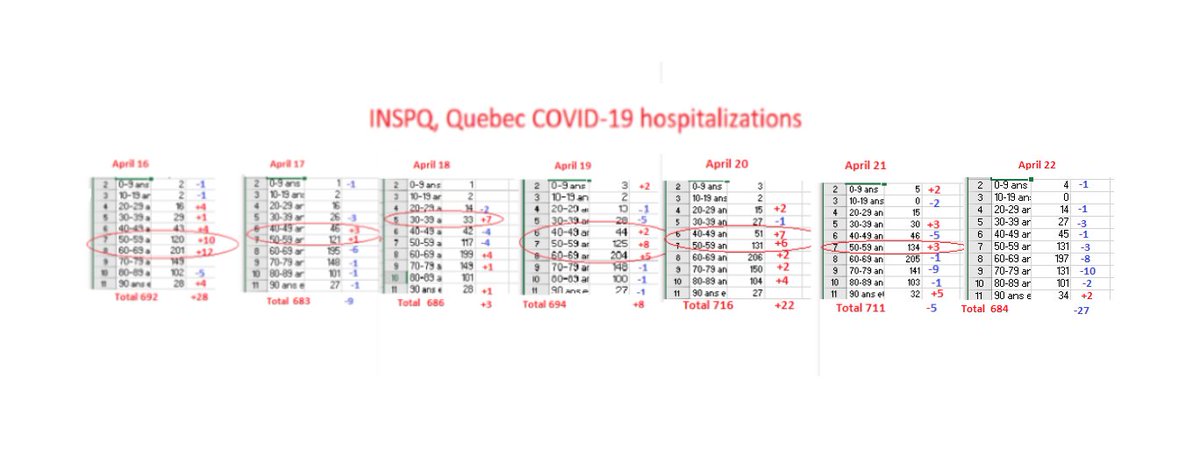
1) At least one in four Montrealers who's received a first vaccine dose has by now built up enough immunity to not only fend off a #COVID19 infection, but to limit the spread of the virus in the city. In this thread, I'll explore the subject of vaccine coverage in the metropolis.
2) As of April 10, two weeks ago, 25.94% of Montreal’s population had received one #COVID19 vaccine dose. That means that the more than 15,000 people who got vaccinated on that date are now considered to have built up enough immunity, along with those who were inoculated before.
3) Obviously, this segment of the population needs the second dose, the sooner the better. But for now at least, the mass vaccinations appear to have blunted the third wave in Montreal, along with the #pandemic restrictions.
4) On Saturday, the city posted a seven-day rolling average of 13.51 #COVID19 cases per 100,000 residents, down from 14.30 four weeks earlier. The chart below suggests that Montreal may be descending from its epidemiological plateau of cases. 

5) Along with the gradual reduction in #COVID19 infections, hospitalizations due to the #pandemic have plunged in Montreal. Four weeks ago, the city’s hospitals reported 274 such hospitalizations. On Saturday, the number slid to 223.
6) In fact, no city hospital declared an increase in admissions, something I haven’t seen since November. What’s more, hospitalizations have begun to go down in the Capitale-Nationale, suggesting the #pandemic restrictions, plus vaccinations, may be working in this region, too. 

7) But there still are stumbling blocks. As I reported in Saturday’s @mtlgazette, only 62.8% of long-term care health workers have received shots, a number that’s not nearly high enough to prevent outbreaks in eldercare facilities. The general population also awaits vaccination.
8) Some experts have suggested that there’s no #COVID19 exit strategy without vaccinating younger teens. That might not happen for months to come, as the none of the vaccines has been approved yet for this age demographic. montrealgazette.com/news/local-new…
9) Experts have also suggested that at least 75% of the population needs to be fully vaccinated to achieve the necessary collective immunity to defeat the #pandemic. Meanwhile, the federal government has struck agreements with Pfizer for vaccine deliveries continuing until 2024.
10) This raises the possibility that Canadians might have to be vaccinated against #COVID19 and its variants annually until 2024. And on Saturday, variant cases continued rising across Quebec and especially in Montreal, as the chart below reveals. 

11) And outbreaks due to #COVID19 jumped by 22 to 1,203 across Quebec, the highest tally since the peak of the second wave in mid-January. Most of the increase occurred in the workplace. One of those outbreaks has hit the Nova Bus factory in Saint-Eustache.
12) Thus, despite the fact that 35.13% of Montreal’s population has been partially vaccinated as of Saturday, this progress remains tenuous, especially in light of the unfolding acute-care crisis in Ontario. For all these reasons, we must stay as vigilant as ever. End of thread. 

• • •
Missing some Tweet in this thread? You can try to
force a refresh









